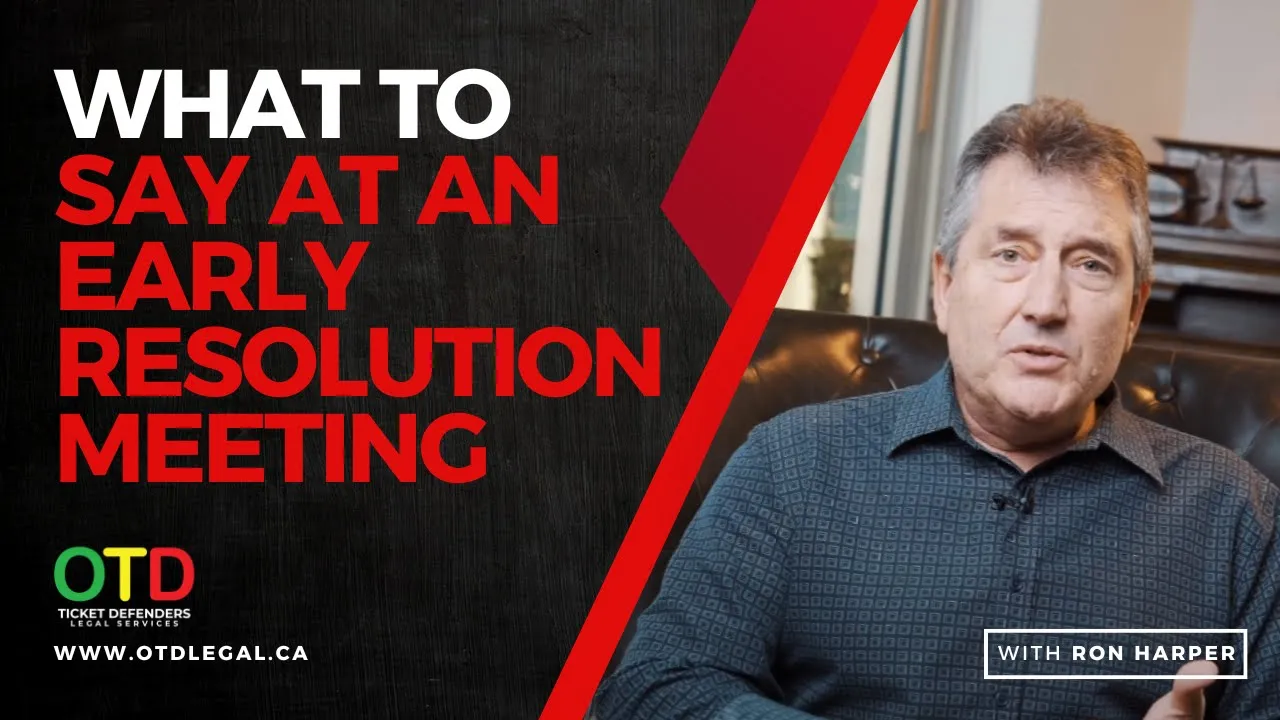If you’re a permanent resident or immigration applicant in Canada, receiving a traffic ticket can raise serious concerns – but in most cases, those fears are unwarranted.
- Most routine traffic violations, such as speeding or failing to stop, are provincial offences and generally do not impact your immigration or PR status.
- However, more serious driving offences – like impaired driving or dangerous driving – are criminal offences under the Criminal Code and can have significant immigration consequences.
- The critical factor is whether the offence falls under provincial traffic law or the federal Criminal Code.
- If you’re dealing with a serious charge or have unpaid fines, it’s essential to seek legal advice promptly to safeguard your status in Canada.
- Understanding how different types of violations are classified can help you avoid unnecessary anxiety and take appropriate action if needed.
Bottom line: While most traffic tickets won’t affect your status, criminal driving offences can pose real risks.
Keep reading to learn how to tell the difference and protect your path to staying in Canada.
Why This Is a Common Concern
Immigration applicants and permanent residents often worry about traffic tickets because they know that criminal inadmissibility can seriously impact their status in Canada. When you receive any kind of legal notice or citation, it’s natural to wonder whether it could affect your future in Canada.
Traffic Ticket vs. Criminal Charge: What’s the Difference?
The key distinction that determines whether a traffic violation will affect your immigration status is whether it’s classified as a provincial offence or a criminal offence under federal law.
Provincial offences are violations of provincial laws, such as Ontario’s Highway Traffic Act. These include:
- Speeding tickets
- Parking violations
- Failure to wear a seatbelt
- Running a red light
- Most moving violations
These offences appear on your driving record, not your criminal record. They typically result in fines, demerit points, and potentially licence suspensions, but they don’t create a criminal conviction.
Criminal offences are violations of federal laws under the Criminal Code of Canada. Some serious driving-related criminal offences include:
- Impaired driving (DUI/DWI)
- Dangerous driving
- Criminal negligence causing death or bodily harm
- Failing to remain at the scene of an accident (in certain circumstances)
These offences result in a criminal record and can significantly impact your immigration status.
Why Immigration Applicants and PR Holders Worry
The concern is completely understandable. Canada’s immigration system takes criminality seriously, and the consequences of criminal inadmissibility can be severe:
- For immigration applicants: Criminal inadmissibility can result in application refusal
- For permanent residents: Serious criminality can lead to loss of PR status and removal from Canada
- For everyone: Even minor criminal convictions can affect travel, employment, and other opportunities
The problem is that many people don’t understand the distinction between provincial traffic offences and criminal charges. This lack of clarity leads to unnecessary worry when they receive routine traffic tickets.
Can a Traffic Ticket Impact Your Immigration Application?
For most traffic tickets, the answer is no. Immigration, Refugees and Citizenship Canada (IRCC) focuses on criminality when assessing inadmissibility, and routine traffic violations don’t constitute criminal offences.
IRCC’s Focus: Criminality and Inadmissibility
IRCC evaluates criminal inadmissibility based on convictions under federal criminal law. The Immigration and Refugee Protection Act defines two main categories:
Serious Criminality applies to:
- Convictions in Canada for offences punishable by maximum imprisonment of at least 10 years
- Convictions resulting in prison sentences of more than six months
- Equivalent foreign convictions
Criminality (for foreign nationals) applies to:
- Convictions for indictable offences in Canada
- Two or more summary conviction offences from different events
- Equivalent foreign convictions
Regular traffic tickets under provincial law don’t fall into either category. A speeding ticket, parking violation, or failure to signal won’t appear on the criminal background checks that IRCC conducts.
When a Simple Ticket Might Still Cause Issues (e.g. unpaid fines)
While the ticket itself won’t affect your immigration status, failing to deal with it properly could create problems:
Unpaid fines can lead to:
- Licence suspension
- Additional penalties and interest
- Collections actions
Failure to appear in court when required can result in:
- Bench warrants for certain serious charges
The key is addressing tickets promptly and appropriately. OTD Legal can help ensure you handle traffic matters correctly to avoid any escalation that could create bigger problems.
What About Permanent Residents?
Permanent residents have stronger protections than foreign nationals, but serious criminal convictions can still jeopardize their status.
Are You at Risk of Losing Your PR Status?
For permanent residents, the threshold for losing status due to criminality is quite high. You would need to be convicted of serious criminality, which requires:
- A conviction in Canada for an offence punishable by maximum imprisonment of at least 10 years, OR
- A prison sentence of more than six months
Regular provincial traffic tickets simply don’t meet these thresholds. Even multiple speeding tickets, careless driving charges, or other Highway Traffic Act violations won’t put your PR status at risk.
However, serious driving-related criminal charges are a different story. Impaired driving, dangerous driving, or criminal negligence charges can definitely threaten your permanent residence status if they result in significant jail sentences.
What If You Get Multiple Tickets?
Having several traffic tickets won’t affect your immigration status, but they can create other serious problems:
Accumulating demerit points can lead to:
- Licence suspension
- Increased insurance premiums
- Mandatory driver improvement courses
Pattern of violations might indicate:
- Need for better understanding of traffic laws
- Potential risk for more serious charges
The real risk isn’t to your immigration status – it’s that multiple tickets might indicate driving habits that could eventually lead to a serious charge that IS criminal. For example, multiple speeding tickets might suggest a pattern that could escalate to dangerous driving charges.
When a Ticket Might Lead to Bigger Problems
While most traffic tickets won’t affect your immigration status, certain situations can escalate into criminal matters that definitely will impact your status in Canada.
Stunt driving charges in Ontario, while not criminal, carry severe penalties including:
- Immediate 30-day licence suspension
- Vehicle impoundment
- Fines up to $10,000
- Possible jail time up to six months
Although stunt driving doesn’t create a criminal record, the severity of consequences and potential for jail time makes it crucial to fight these charges with experienced legal help.
Driving while suspended can escalate from a provincial offence to a criminal charge in certain circumstances, especially with multiple violations.
Failing to remain at an accident scene can be either a provincial offence or a criminal charge, depending on the circumstances and severity.
Distracted driving charges, especially for novice drivers, carry increasing penalties and can impact your ability to maintain valid driving privileges.
The key is understanding when a traffic matter has the potential to become something more serious and getting appropriate legal help to prevent escalation.
What to Do If You’re Concerned
If you’ve received a traffic ticket and you’re worried about immigration implications, here’s what you should do:
Get Legal Advice Early
The most important step is getting proper legal advice to understand exactly what you’re dealing with. OTD Legal’s experienced team can help you understand:
- Whether your charge is provincial or criminal
- What penalties you’re facing
- How to minimize consequences
- Whether the matter could escalate
Don’t assume that because someone tells you “it’s just a traffic ticket” that there won’t be serious consequences. Some provincial offences carry penalties that can significantly impact your life, even if they don’t affect your immigration status.
Keep Records, Pay Fines, and Don’t Ignore Notices
Proper documentation is crucial for both traffic matters and immigration purposes:
Keep detailed records of:
- All tickets and court documents
- Payment receipts
- Court appearances and outcomes
- Any legal representation
Never ignore court notices or deadlines. Missing a court date can escalate a simple traffic matter into something much more serious.
Pay fines promptly if you’re not fighting the charge. Unpaid fines can lead to licence suspension and other complications.
Understand your options. Many traffic tickets can be fought successfully or reduced to lesser charges with proper legal representation.
How OTD Legal Can Help You Handle It Properly
OTD Legal specializes in traffic defence across Ontario and understands the unique concerns of immigrants and permanent residents. Our team can:
- Assess your specific situation to determine if there are any immigration implications
- Fight tickets that shouldn’t be on your record or can be reduced
- Ensure proper procedures are followed to prevent escalation
- Provide clear guidance on how to handle the matter appropriately
We understand that your status in Canada is important to you, and we’re committed to helping you resolve traffic matters in a way that protects your interests. Our experienced paralegals and lawyers have decades of combined experience handling traffic cases throughout Ontario.
Don’t let uncertainty about a traffic ticket cause unnecessary stress. Contact us for a free consultation to understand exactly what you’re dealing with and how to handle it properly.
Frequently Asked Questions
Will a speeding ticket affect my citizenship application?
No, a simple speeding ticket under the Highway Traffic Act will not affect your citizenship application. IRCC only considers criminal convictions when assessing criminality for citizenship purposes. However, make sure you handle the ticket properly – pay the fine or fight it through proper legal channels – to avoid any potential escalation.
I got a careless driving charge. Is this criminal?
Careless driving under Ontario’s Highway Traffic Act is not a criminal charge, so it won’t create a criminal record or affect your immigration status. However, careless driving can carry serious penalties including fines up to $2,000, possible jail time, and licence suspension. If the careless driving caused bodily harm or death, penalties are much more severe. It’s worth fighting these charges to minimize consequences.
What should I do if I get a DUI while on a work permit?
A DUI (impaired driving) is a serious criminal charge that can definitely affect your immigration status. This is not a traffic ticket – it’s a criminal matter that requires immediate attention from both a criminal lawyer and an immigration lawyer. Don’t handle this on your own. The consequences could include losing your work permit, being refused permanent residence, or being removed from Canada.
Don’t let traffic ticket concerns get in the way of your Canadian dream. While most routine traffic violations won’t affect your immigration or PR status, it’s important to handle them properly and understand when you might be dealing with something more serious.
If you’re facing any traffic charges in Ontario and have concerns about how they might affect your status in Canada, contact OTD Legal for a free consultation. We’ll help you understand exactly what you’re dealing with and ensure your traffic matters are resolved in a way that protects your future in Canada.







